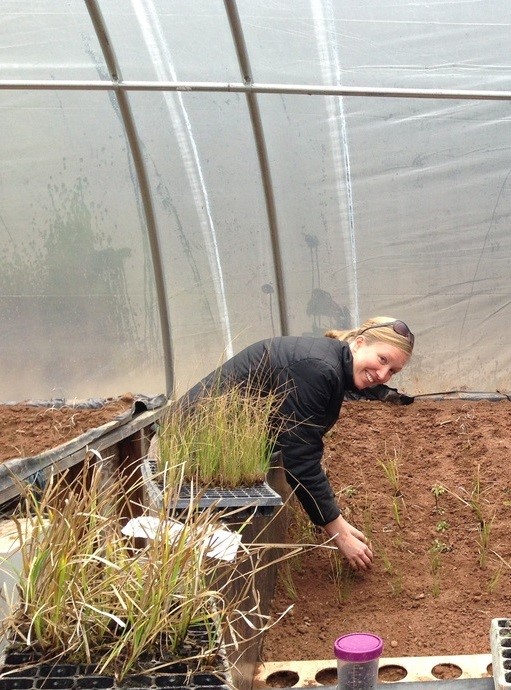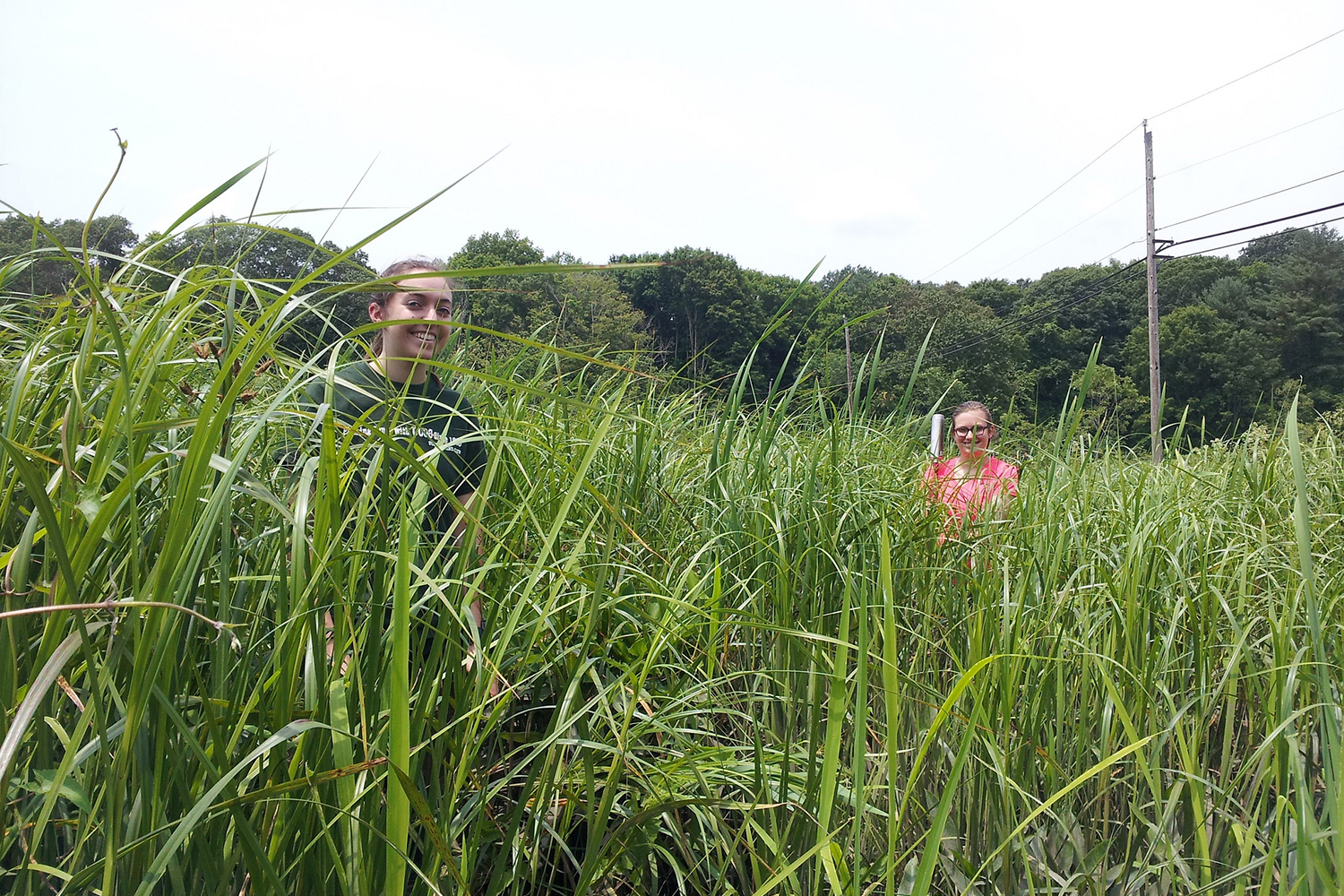 As a biogeochemist, Ashley Helton, assistant professor in the Department of Natural Resources and the Environment (NRE), is interested in how climate change and land development affect pollution in aquatic ecosystems.
As a biogeochemist, Ashley Helton, assistant professor in the Department of Natural Resources and the Environment (NRE), is interested in how climate change and land development affect pollution in aquatic ecosystems.
She says, “What really fascinates me about biogeochemistry is that it has the potential to explain the underlying mechanisms of many big environmental issues we’re trying to address today.”
Helton is involved in several research projects that examine some of these issues. In a two-year project funded through Connecticut Sea Grant, Helton and master’s student April Doroski are investigating how sea level rise and wetland restoration efforts may alter the capacity of fresh water wetlands to process urban contamination. The study involves approximately thirty-five wetlands along several Connecticut coastline river systems.
Excess nitrogen and metals such as copper, lead and zinc are common pollutants that enter waterways from urban communities. Wetlands serve an important ecosystem service by retaining metals and removing nitrogen runoff through denitrification, a process in which microbes remove nitrogen from the water and release it to the atmosphere as nitrogen gas.
Helton says, “As sea levels rise, many fresh water and brackish wetlands experience elevated salinity, and we think it may affect the way wetlands process these urban contaminants.”



